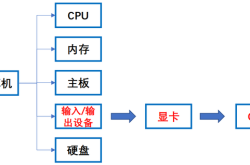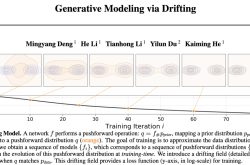2024 Global Auto Industry Layoffs: A Harsh Winter Amid Industry Restructuring
![]() 11/19 2024
11/19 2024
![]() 713
713


Source: Zhiche Technology
In 2024, the global automotive industry entered an unprecedented period of adjustment. From traditional automakers to new players, and from OEMs to component suppliers, a wave of layoffs affecting the entire globe is unfolding. As the year draws to a close, the automotive industry has not rebounded as expected.

Salary Cuts and Layoffs? Can NIO Survive?
New players in the industry are also facing the pain of transformation.
Recently, NIO was rumored to be undergoing large-scale layoffs. According to insiders, the layoff rate could reach as high as 70%. Subsequently, NIO denied the rumors. Chen Chaohua, Vice President of NIO, publicly stated on social media, "Streamlining the company structure and optimizing costs have become the norm. Only by lightening the load can we navigate through cycles and survive, which is what a true champion does."
From being the top-selling new energy vehicle brand to being embroiled in a layoff controversy, NIO has taken less than two years. The automotive market is becoming increasingly competitive, and against the backdrop of significant price reductions by major brands, NIO has lost its cost-performance advantage and failed to list promptly, leaving it with increasingly limited time.

Japanese Automakers in Crisis, Cutting Costs to Survive
To curb declining performance, Japanese automakers have had to initiate emergency self-rescue measures.
Nissan released its third-quarter financial report in early November, revealing alarming declines in both sales and profitability: global sales and revenue were both on a downward trend, with an operating profit margin of only 1.1% and a net profit turning from profit to loss, with a quarterly loss of 9.3 billion yen (approximately RMB 440 million). Following the report's release, Nissan's share price fell by more than 4%, and since the beginning of the year, its share price has fallen by a cumulative 27%.
To curb the declining performance, Nissan initiated emergency cost-cutting measures: reducing global production capacity by 20% and laying off approximately 9,000 employees. To demonstrate the company's resolve, CEO Makoto Uchida took the lead in taking a pay cut, voluntarily forgoing 50% of his monthly salary starting in November 2024, with other executive committee members also voluntarily taking corresponding pay cuts.
The 91-year-old Japanese giant is now resorting to drastic measures to survive. With Nissan's financial troubles, time is running out for them.

Massive Layoffs in European Automakers
The European automotive industry is also shrouded in uncertainty.
On November 5, Global Times quoted foreign media reports that Bosch, a leading global automotive component manufacturer, announced that it might further optimize its human resource allocation due to its inability to achieve financial targets in 2024. The latest layoff plan is expected to affect over 7,000 positions, primarily in the automotive components division, but also impacting the tool manufacturing division and the BSH subsidiary responsible for home appliances. Notably, this is the fourth round of layoffs implemented by Bosch this year.
Another German automotive component giant, Schaeffler, followed suit on the 5th of the month, announcing layoffs of about 4,700 employees in Europe, with about 2,800 layoffs in China. Additionally, Schaeffler plans to close two of its European factories, with specific details to be announced by the end of the year.
Schaeffler released its third-quarter financial report on November 5, revealing a significant decline in core profits for the quarter from July to September. Earnings before interest and taxes (EBIT) fell by 44.9% to €187 million ($203.4 million), failing to meet market expectations. Weak sales of components due to the downturn in the European automotive industry led to a near-halving of Schaeffler's operating profit in the third quarter of this year.
According to French newspaper Le Figaro, Michelin Group, a French tire manufacturer, announced on November 5 that it would close its plants in Chaulnes and Vannes, western France, and plan to lay off 1,250 employees. Additionally, Michelin plans to close two factories in Germany by 2025.
ZF, a multinational automotive component supplier, is accelerating its reduction of labor costs. By the end of 2028, the number of ZF employees in Germany will gradually decrease by about 11,000 to 14,000. Currently, ZF employs approximately 168,700 people worldwide, including 54,000 in Germany. This means that about one-quarter of German employees will be affected.
On September 2, Volkswagen Group issued a statement stating that due to the very demanding and severe situation in the European automotive industry, the company is considering closing one of its automotive manufacturing plants and one components plant in Germany for the first time and attempting to terminate the employment protection agreement implemented since 1994 to further reduce expenses. On October 28, Volkswagen indicated that the company will adopt a series of cost-saving measures to address declining profits, including closing at least three factories in Germany, laying off tens of thousands of employees, and downsizing remaining German factories. Excessive energy and other costs are indeed a sharp knife hanging over Volkswagen's head.
In July, the well-known supplier Recaro Automotive faced severe financial difficulties due to almost no new orders and filed for bankruptcy.
According to the latest data from consulting firm Falkensteg, a total of 20 German automotive component suppliers with annual revenues exceeding €10 million filed for bankruptcy in the first half of 2024, a year-on-year increase of 60%. 2024 is a harsh winter for the European automotive industry.

U.S. Automakers Attempt to Reduce Costs
Fearing industry decline, U.S. automakers are also attempting to reduce costs and staff numbers.
According to overseas media reports cited by ECNS, General Motors plans to lay off more than 1,000 salaried employees worldwide, including 600 in Warren, Michigan, after evaluating and streamlining its "software and services division." As of the end of last year, GM had a total of 76,000 salaried employees globally, with this layoff accounting for approximately 1.3% of the company's salaried workforce.
In May, the U.S. electric vehicle manufacturer Lucid Group announced plans to lay off approximately 6% of its workforce in the U.S., affecting about 400 employees. This layoff plan is expected to be completed by the end of the third quarter of 2024.
On April 17, the U.S. electric vehicle manufacturer Rivian announced a new round of layoffs, cutting about 1% of its workforce to address the current slowdown in demand for electric vehicles. This is the second round of layoffs following the one in February this year.
Tesla announced a massive layoff plan in April 2024, cutting approximately 10% of its global workforce, involving about 14,000 employees. Among them, some departments in Tesla China saw even more significant layoffs, with layoff rates exceeding 30%.

Foreign and Joint Venture Automakers Are Laying Off Employees
The trend indicates that joint venture automakers will face increasing difficulties.
Following layoffs at GAC Honda in May, Dongfeng Honda, another Honda joint venture in China, also initiated large-scale layoffs primarily through voluntary resignations in September, with an expected impact on 2,000 employees. Honda plans to reduce its China operations by about 3,000 people through layoffs and natural attrition at GAC Honda within the 2024 fiscal year (ending March 2025). Honda may be the most aggressive joint venture automaker in optimizing labor costs and reducing production capacity in the Chinese market.

Surviving This Harsh Winter
This round of adjustments reflects profound changes underway in the global automotive industry: the pain of transformation for traditional automakers, intensified competition in the new energy vehicle market, supply chain restructuring, and other factors forcing companies to "lighten their load" to cope with the industry's winter. According to statistics, major automakers worldwide have announced layoffs of tens of thousands of employees in 2024, affecting major automotive markets such as the United States, Germany, the United Kingdom, and China.
Analysts believe that the next 3-5 years will be a watershed period for the industry, with only those companies that adjust in a timely manner and improve efficiency able to gain an advantage in the new round of competition. This adjustment wave starting in 2024 may mark the beginning of a new development cycle for the industry.
Overall, compared to foreign enterprises, the development of China's automotive industry market is faster and more dynamic. It is hoped that Chinese enterprises can achieve overtaking by leveraging opportunities in the new energy market.
Disclaimer:
Any works on this official account labeled "Source: XXX (not Zhiche Technology)" are reproduced from other media. The purpose of reproduction is to deliver and share more information and does not represent the platform's endorsement of the views or responsibility for their authenticity. The copyright belongs to the original author. Please contact us for deletion if there is any infringement.








